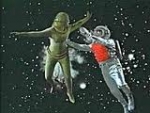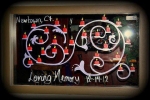esangston wrote:The way you described it sounds like how the doc asked my husband when they were figuring out what symptoms of narco he has. But not all narco people have all symotoms. True almost all have cataplexy. But there are those lucky birds who hit the medical "lottery" and have no other symptom beyond and forgive me if I'm using laymans terms but his rem sleep is all outta whack, which I thought just meant if he was immobile for more than a minute, he was out and in rem sleep, but his sleep cycles at night are also outta whack.
Btw you said you were taking a nap, is that common occurrence? If so it might be an idea to talk to your sleep doc.
Night terrors are also a symptom of narcolepsy.
Granted yes, there are other things that cause these things, but it's always nice when you can rule things out... Here's what Stanford says about narcolepsy symptoms...
"The main symptoms of narcolepsy are excessive daytime sleepiness and abnormal REM sleep: Narcolepsy is not only a serious and common medical problem, it also offers basic sleep researchers a unique opportunity to gather new information on the central mechanisms regulating REM sleep and alertness. Since the 1960s it has been known that several of the disabling symptoms of narcolepsy, such as sleep paralysis, cataplexy and hypnagogic hallucinations, are pathological equivalents of REM sleep. In sleep paralysis, a frightening symptom considered to be an abnormal episode of REM sleep atonia, the patient suddenly finds himself unable to move for a few minutes, most often upon falling asleep or waking up. During hypnagogic hallucinations, patients experience dream-like auditory or visual hallucinations, while dozing or falling asleep. Cataplexy, a pathological equivalent of REM sleep atonia unique to narcolepsy, is a striking, sudden episode of muscle weakness triggered by emotions. Typically, the patient's knees buckle and may give way upon laughing, elation, surprise or anger. In other typical cataplectic attacks the head may drop or the jaw may become slack. In severe cases, the patient might fall down and become completely paralyzed for a few seconds to several minutes. Reflexes are abolished during the attack."
I'm still learning about narcolepsy, and don't focus on the parts my husband doesn't have beyond knowing what they are so I can recognize them if they ever do start... So look into it on your own... Stanfords website seems to be the most comprehensive but at times it's hard to read with a md...
thanks for that, comprehensive reply. Ill look into narcolepsy more this week, though i doubt it. one thing about my moderate untreated apnea AHI 21.5 was that I wasnt prone to tiredness. this experience is very infrequent for me (though i also have bruxism , grinding and biting of teeth, and wear an upper gaurd for that). I'm not even sure what I experiece is propper narcolepsy, so Ill look into it, and I reckon there's enough chronic pain to do weird stuff to this brain (panic disorder came up on that Standord site), which will be diagnosed this week I think. as for waking hallucinations, I wish, in the religious/spiritual sense anyhow. stress, mentioned at the wiki page on this would be my guess. http://en.wikipedia.org/wiki/Sleep_Paralysis just thought the Hypopnea event was not a coincidence, but like I good scientist I'll have to look it up next time, which could be a year or more away for this experience for me. Ill mention it to my sleep specialist when I see him later in the year.
yes, I had flue shots, was born in the last year of above ground nuclear testing, and I have unfaithful thoughts about the PTB.











